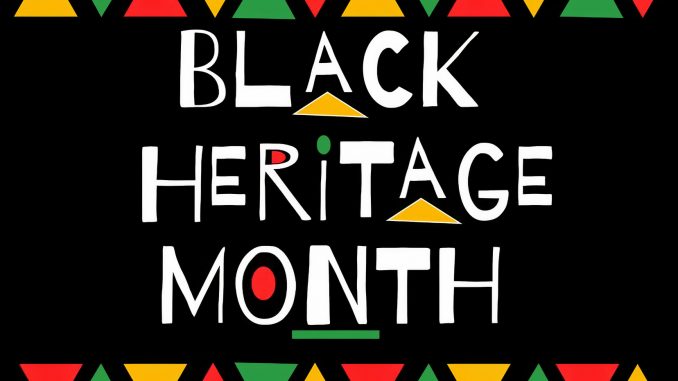
Black Studies is a field that started in the mid to late 1960s. It grew out of the Black Power movement where students at universities demanded a course curriculum that reflected their life experience.
Until this time, college courses and education in general were administered through a Eurocentric worldview focused on Western civilization and the European experience. These students fought for representation within the educational sphere that concentrated on the African experience. The first Black Studies department was founded in 1968 at San Francisco State College (now San Francisco State University).
Following San Francisco State College, SUNY New Paltz started their Black Studies program in the fall of 1969, making their program one of the oldest in history and the first department on the East Coast.
Chair of the Black Studies department Weldon McWilliams said, “[The department was made] from student demand. It was what I want to call a nationwide phenomenon. We were in a period of anti-war sentiment and counterculture, where a lot of people were questioning how things were set up.”
This phenomenon didn’t just stop with San Francisco State and SUNY New Paltz. Between 1969 and 1973 over 600 Black Studies programs and departments were founded.
However, just because many departments were popping up around this time doesn’t mean they flourished at every university they came to. Black Studies departments are oftentimes underfunded and underrepresented, causing them to struggle to survive on college campuses, especially at predominantly white institutions (PWIs).
“We could say now that we’re surviving, but we want to get to a point where we’re thriving.”
– Weldon McWilliams
“I will say that the fight here for Black Studies, and the fight for survival and its existence here has probably been very similar to other Black Studies departments at [other] PWIs,” says McWilliams. “It’s been more or less a fight for stability, a fight for survival, a fight for legitimacy. We want to be a department that flourishes because we believe flourishing is a lot different than surviving. We could say now that we’re surviving, but we want to get to a point where we’re thriving.”
The Black Studies department recently just moved into Old Main, just one small step toward fostering a space for the department to flourish in. The fall 2022 semester was their first in this now permanent home. The move was started under former President Donald Christian and then facilitated under President Darrell Wheeler.
“Originally, the home of Black Studies was Shango Hall and for one reason or another the department was moved from Shango into the Faculty Office Buildings, which are mobile placements,” McWilliams said. “I think most of the school realizes now, we were in those temporary dwellings for over almost 30 years. So it had become a fight amongst the Black Studies students, the Black Studies department and many from the New Paltz community to advocate to have the department move out of these temporary dwellings and into a permanent dwelling.”
The Black Studies department has been working to create connections both inside and out of the campus community in order to help them thrive. This Black History Month, the department has many panels and programs in place to enlighten all students whether they are involved in the department or not.
Last week, the department hosted a Black mobility panel discussion titled “Marital Selection x Black Immigrants in the USA” on Feb. 7 with panelists Vadricka Etienne and Karen Okigbo. Then, in collaboration with the art history department, they co-hosted a screening of the film “Free Renty: Lanier v. Harvard” on Feb. 8, with a presentation on the film the following day on Feb 9.
The panel on Feb. 7 discussed how Black immigrants and their children go about choosing a romantic partner and the preferences that either follow from generation to generation or those that are cut off.
The film screening and presentation, given by Tamara Lanier, focused on her attempt to recover the daguerreotypes of her great-great-great grandfather Renty that were held by Harvard. The photographs of Renty were taken in 1850 and were an attempt to promote white supremacy.
The department is also holding what they call “teach-ins” at the Sojourner Truth Library. Different Black Studies classes will be given at the library so that anyone who is there can stop in and partake in that class.
McWilliams says that it’s important for students of any major to partake in events such as these as they work to broaden one’s perspective and provide a more fruitful outlook on the world we live in.
“A lot of the stuff that we teach in Black History are things that have either been suppressed in traditional education, or they haven’t been taught to the fullest extent,” he said. “[These events] are the Black Studies department’s way of sharing knowledge and to help our students grasp a sense that even though you may have been raised one way, there’s many different ways to experience this planet Earth and all of them are valid and all of them should be respected.”
Broadening horizons and expanding the minds of students who have not taken a Black Studies course is one of the most important aspects of its curricula according to McWilliams. Black Studies is without a doubt intellectual work and exposing oneself to an alternate perspective is one of the most intellectual things someone can do.The department has two more events planned for the rest of February. On Feb. 21 the department will host the Dr. AJ Williams-Myers Black History Month Lecture titled “The Beauty of White Supremacy” given by scholar-activist Yaba Blay in Lecture Center 100 at 6:30 p.m. The last event will be a virtual workshop on Feb. 22 titled “(Re) Shaping, (Re) Shifting & (Re) Imagining Our Work Through Racial Literacy” given by Yolanda Sealy-Ruiz. To RSVP for the virtual workshop visit tinyurl.com/ArchofSelfWebEx.

